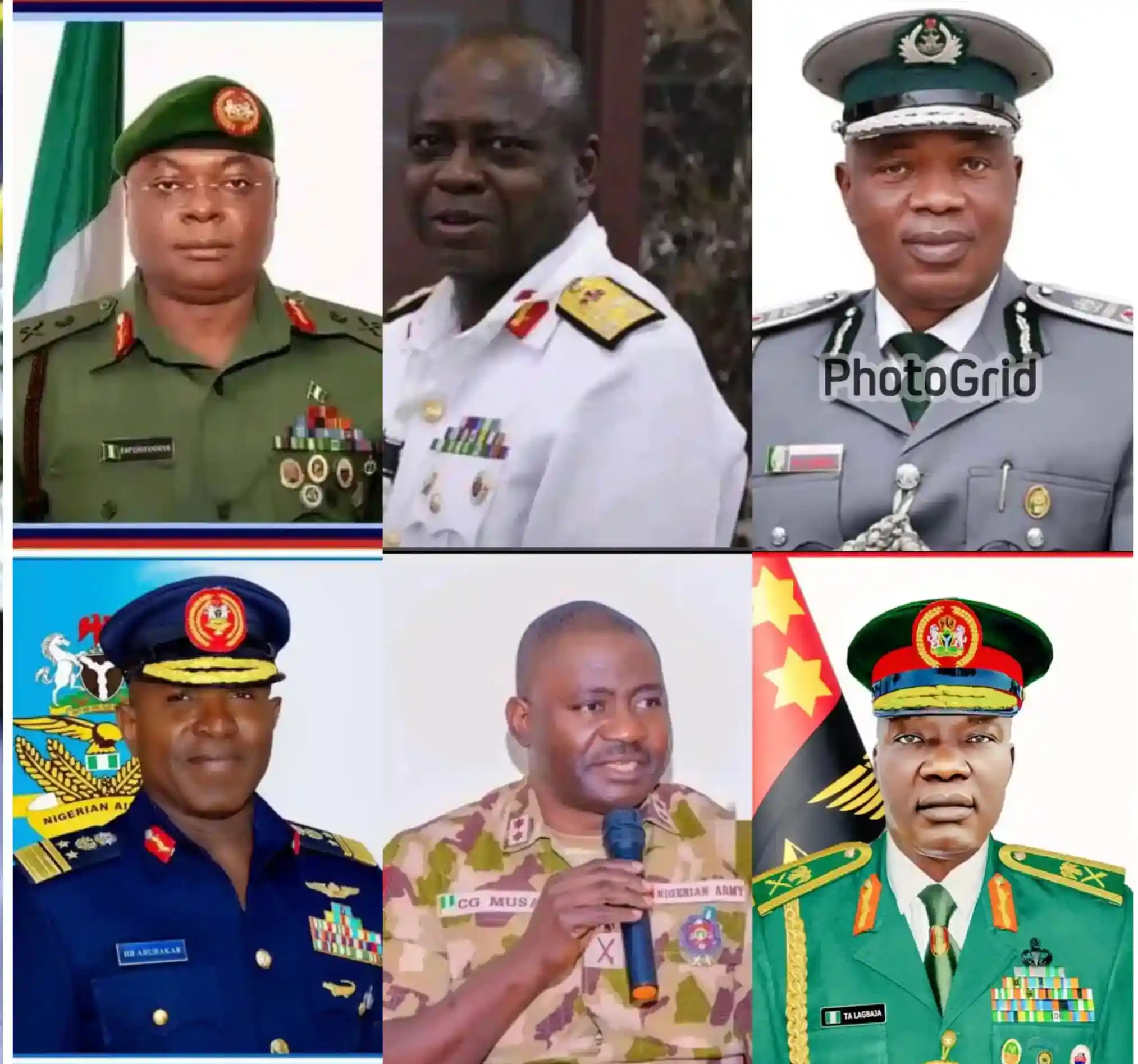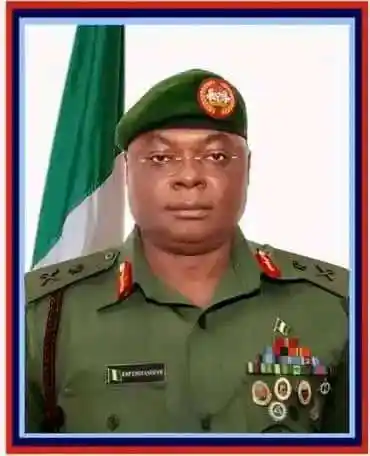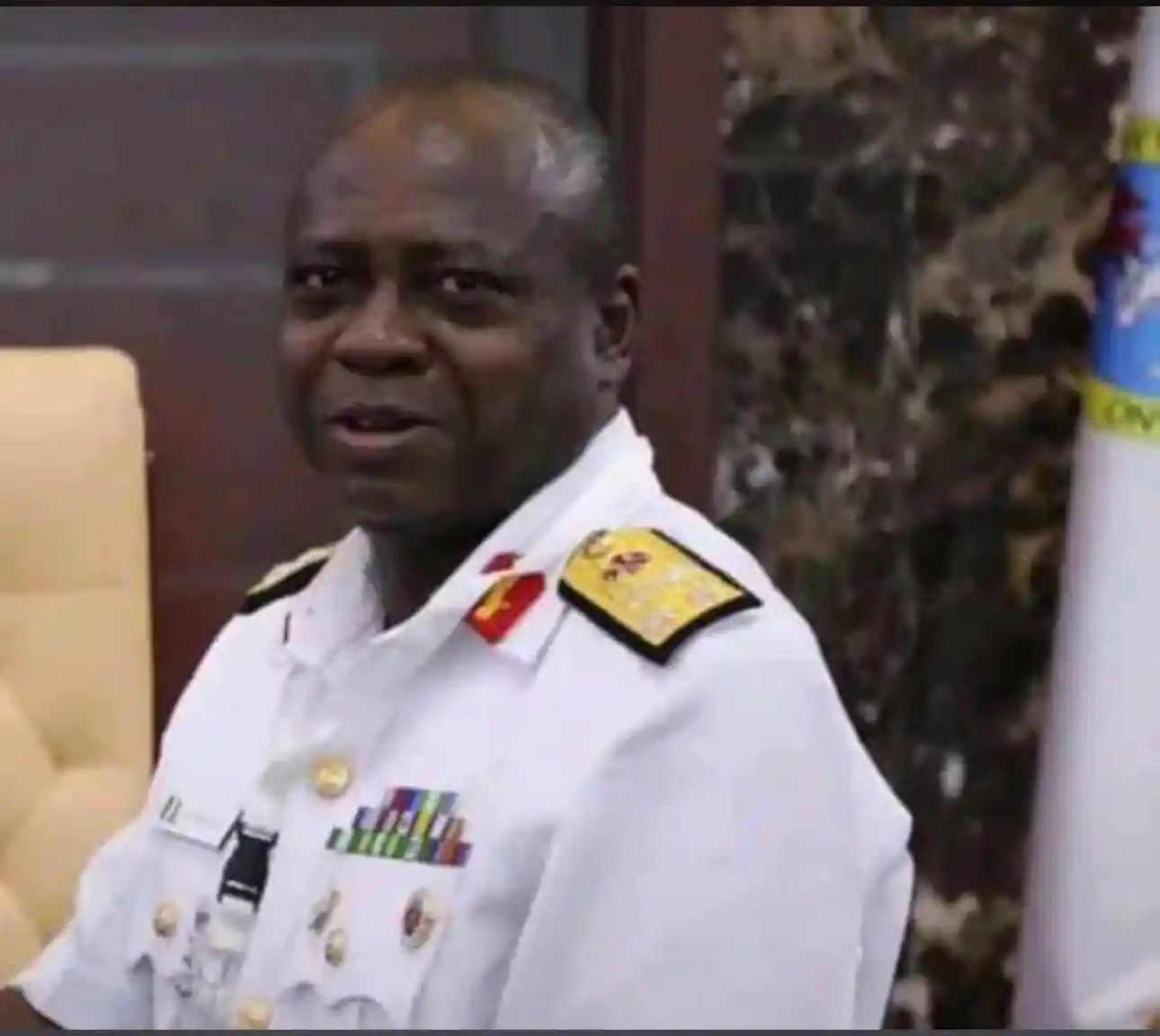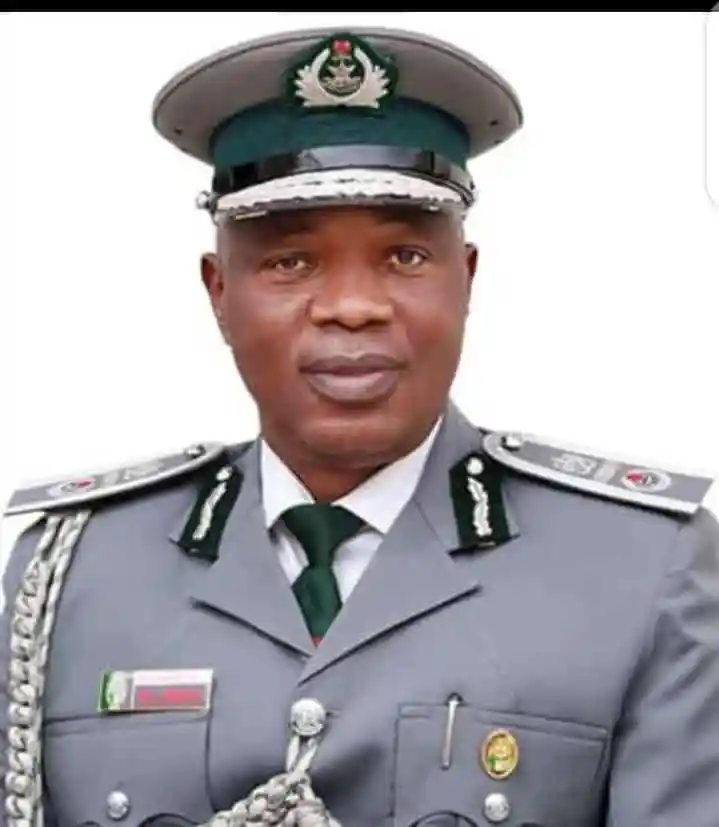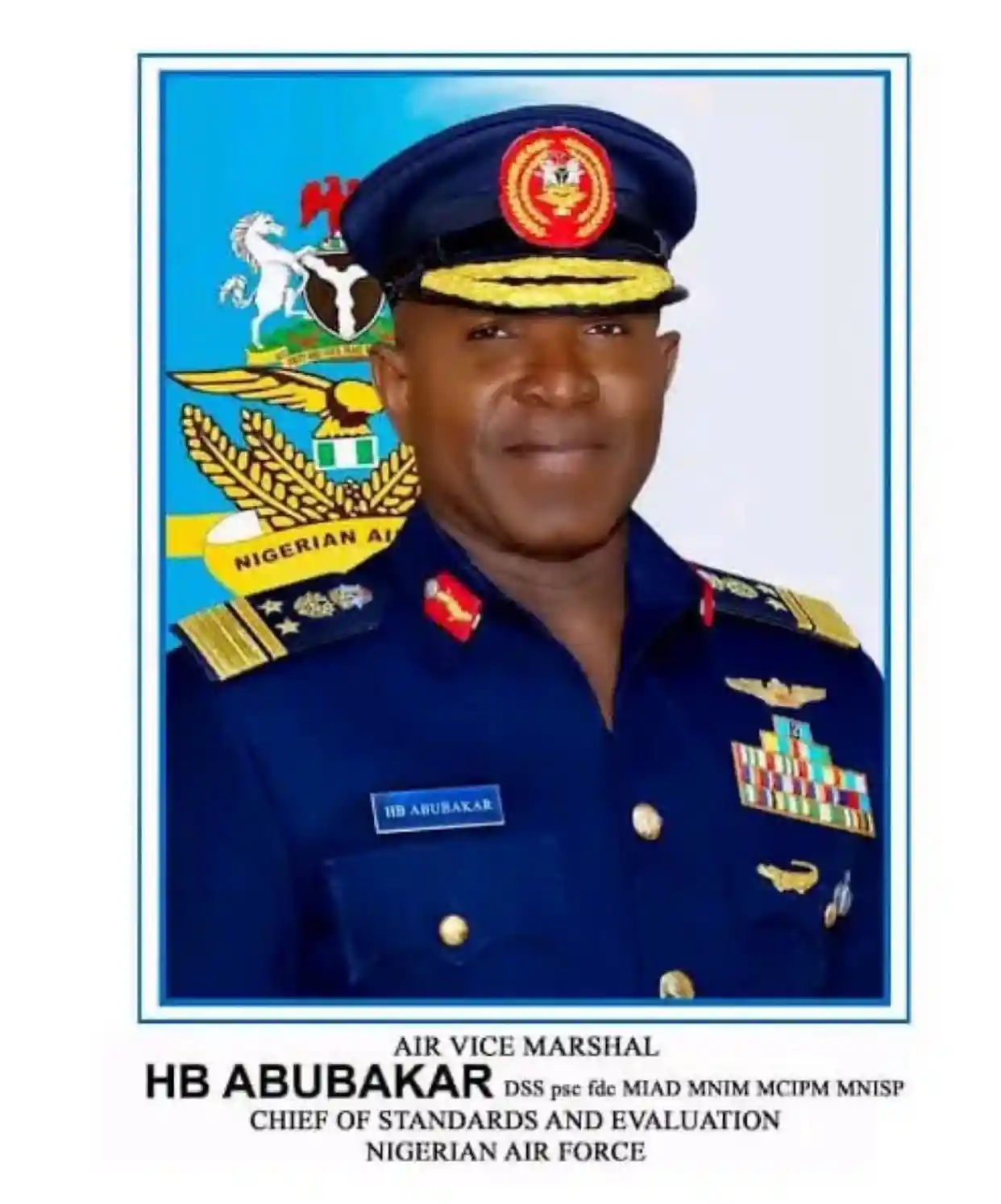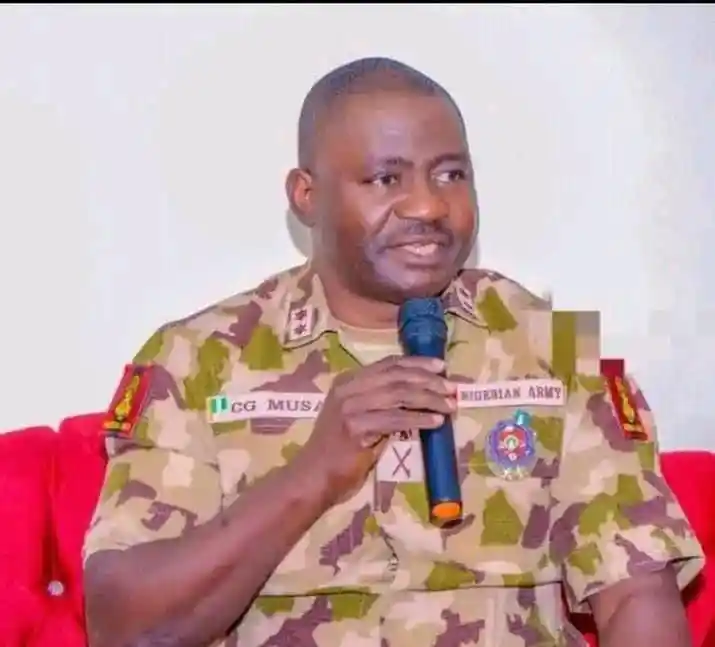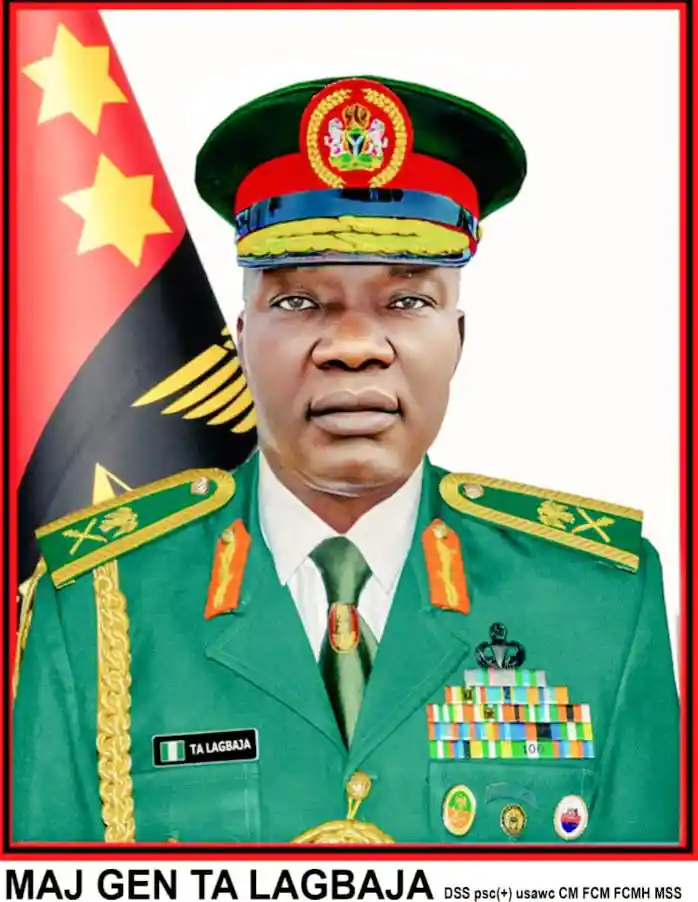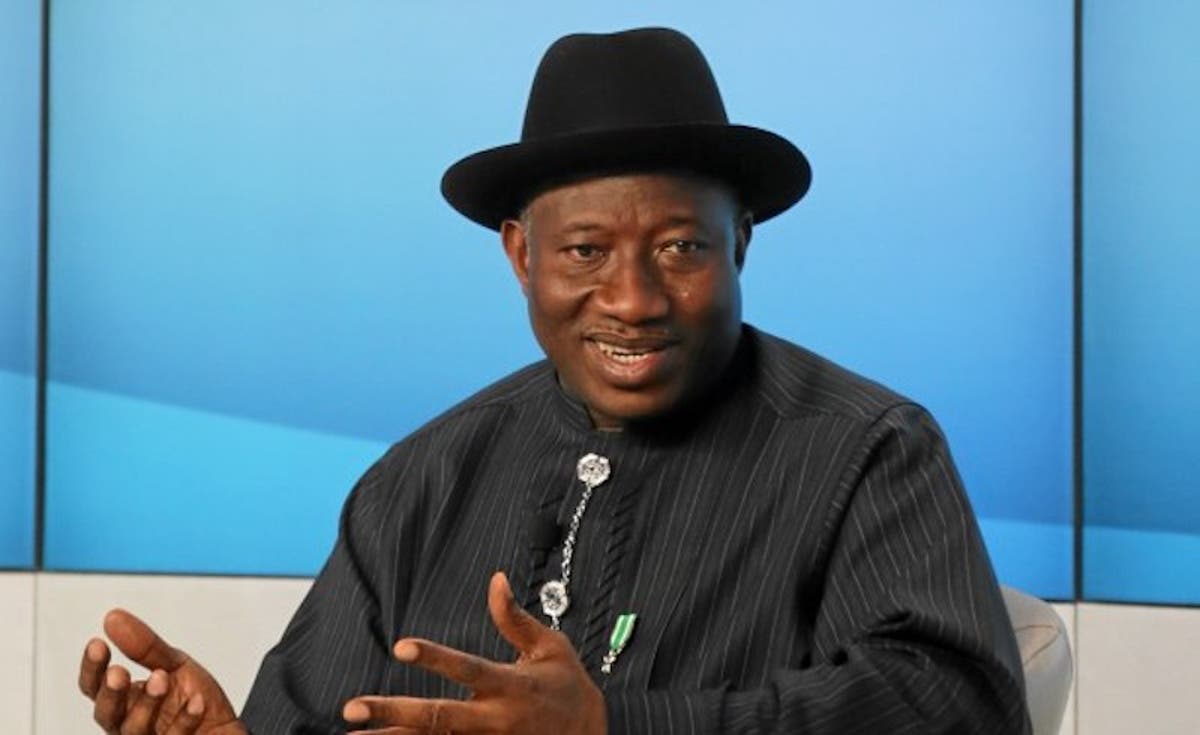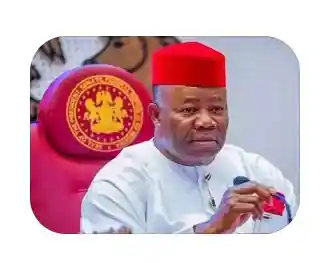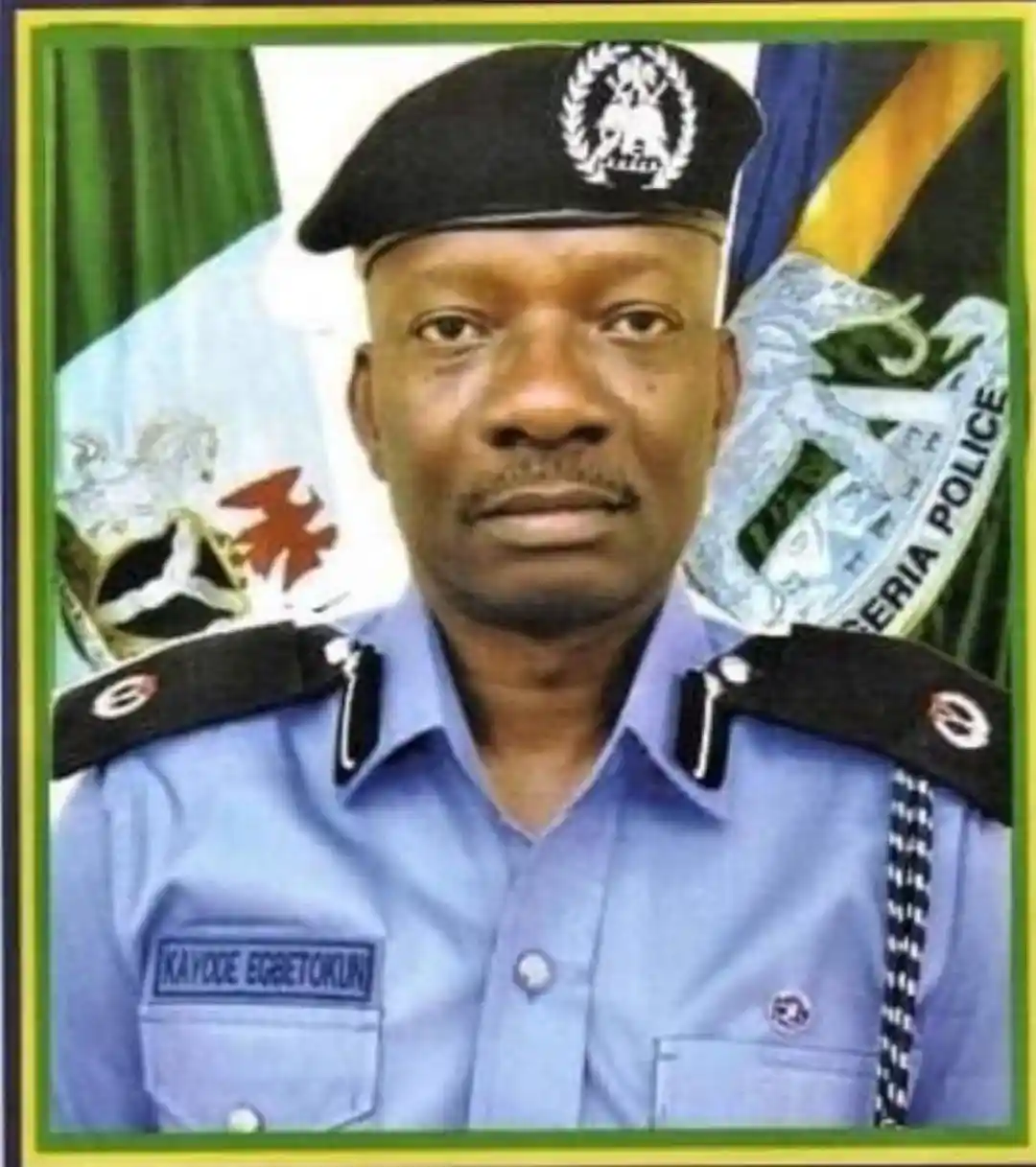“Service Chiefs in Nigeria: Ensuring National Security – Analyzing Challenges and Prospects”
The significance of service chiefs in upholding national security is extremely important in Nigeria. These military officials, designated by the President, have the duty of protecting the country from both internal and external threats. Nevertheless, the effectiveness of service chiefs in tackling security issues has been a topic of heated discussion in recent times.
Read Also Profile of six new Service chiefs in Nigeria and IGP
This article delves into the examination of Nigeria’s service chiefs‘ role in national security, conducted by Wasiu Salami, TVC News Senior Executive for Digital and Social Media. The analysis explores the challenges they encounter and highlights potential opportunities for enhancement.”
The Importance of Service Chiefs in Nigeria.
Service chiefs in Nigeria, including the Chief of Defense Staff (CDS) and the heads of the Nigerian Army, Nigerian Navy, and Nigerian Air Force, play a vital role in safeguarding the nation’s security. They are responsible for overseeing military operations, coordinating strategies, and advising the President on matters related to national security. Their leadership and decision-making directly influence the success of counterinsurgency efforts, border protection, and the overall defense structure.
Challenges Confronting the new Service chiefs in Nigeria
a) Insurgency and Terrorism: Nigeria has been grappling with the Boko Haram insurgency in the northeast for over a decade. Service chiefs face the formidable task of eradicating this threat while also addressing emerging challenges such as banditry, kidnapping, and conflicts between farmers and herders in different parts of the country.
b) Inadequate Funding: Insufficient budgetary allocations to the defense sector pose a significant challenge for service chiefs. Limited resources hinder capacity-building, procurement of modern equipment, and the welfare of military personnel. Sufficient funding is crucial to enhance operational efficiency and boost the morale of the armed forces.
c) Interagency Coordination: Collaboration and synergy among various security agencies are essential for effective national security. Service chiefs must navigate complex relationships and establish cohesive coordination mechanisms to maximize resources, share intelligence, and conduct joint operations.
d) Corruption and Misconduct: Instances of corruption and misconduct within the military can undermine operational effectiveness and erode public trust. Service chiefs must prioritize discipline, integrity, and accountability within their ranks to maintain a professional and credible force.
Prospects for Improvement by the new Service chiefs in Nigeria.
a) Strategic Planning and Intelligence: Service chiefs should prioritize proactive intelligence gathering, analysis, and dissemination to anticipate and preempt security threats. By leveraging technology, developing a robust intelligence network, and fostering partnerships with international allies, Nigeria’s security apparatus can be significantly enhanced.
b) Capacity Building and Modernization: It is essential to invest adequately in training, equipment, and technology to improve the capabilities of the armed forces. Service chiefs should prioritize the professional development of personnel, ensuring they acquire the necessary skills and knowledge to effectively address evolving security challenges.
c) Civil-Military Relations: Strengthening the relationship between the military and civil society is crucial for effective security governance. Service chiefs should promote transparency, engage with communities, and prioritize the respect for human rights in military operations. Building public support and cooperation are essential elements for success.
d) Legislative Reforms: Collaboration between the executive and legislative branches is vital in enacting laws that support national security objectives. Service chiefs should engage with lawmakers to advocate for legal frameworks that enhance operational efficiency while ensuring the protection of human rights and the adherence to the rule of law.
Final Note
Service chiefs in Nigeria hold a critical position in safeguarding national security in the face of a complex and ever-changing threat environment. Despite the challenges posed by insurgency, limited funding, interagency coordination, and misconduct, there are potential avenues for improvement. By focusing on strategic planning, capacity building, fostering strong civil-military relations, and advocating for legislative reforms, Nigeria can bolster its security infrastructure and create a safer environment for its populace. Achieving this objective demands a collective commitment from the government, military leadership, civil society, and the entire citizenry. Through collaborative efforts, Nigeria can overcome these challenges and fortify its national security.
Profile of new Service chiefs in Nigeria
The new service chiefs (photos)
The new Chief of Defense Intelligence, Major General EPA Undiandeye
He’s from Cross River State.
The new Chief of Naval Staff, Rear Admiral Emmanuel Ikechukwu Ogalla, He is from Enugu State .
The New Comptroller General of Customs, Adeniyi Bashir Adewale.
He is from Osun state.
Air Vice Marshal Hassan Bala Abubakar, Newly appointed Chief of Staff to Nigeria AirForce. He hails from Shanono LGA, Kano State.
Major General Christopher Gwabin Musa, the new Chief of Defence Staff.
He is from zangon kataf local government area in Kaduna state
The Newly appointed Chief of Nigerian Army Staff, Major General Taoreed Lagbaja.
He hails from Irepedun LGA, Osun State.

